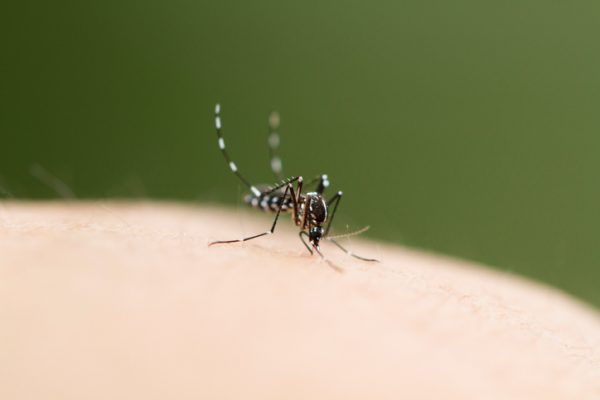
Newborns have been underserved when it comes to medical products for malaria. The drugs and vaccines available to adults and older children are not approved for babies — those doses are too strong to be used safely in such young bodies. A regulatory decision now brings a newly formulated Novartis combination drug to infants, making it the first approved malaria treatment for this vulnerable patient group.
Swissmedic, Switzerland’s drugs regulator, has approved the drug Coartem for use in newborns and young infants, Novartis announced Tuesday. The regulatory assessment included participation from eight African countries that are now expected to follow with their own approvals of the medicine. Basel, Switzerland-based Novartis said it plans to introduce Coartem on a not-for-profit basis in areas where malaria is endemic.
Coartem combines two antimalarial drugs, artemether and lumefantrine, each bringing a different mechanism of action. Artemether works rapidly to reduce levels of the Plasmodium parasites that drive malaria. This property of artemether, derived from a plant called sweet wormwood, was first identified by researchers in China. Lumefantrine has a longer-acting effect, eliminating parasites that remain after artemether has done its work. The pairing of the two compounds reduces the risk of resistance to either drug alone.
In the mid-1990s, Novartis collaborated with Chinese scientists to develop the combination malaria drug that would become Coartem. Swissmedic approved the drug in 1999; the FDA signed off 10 years later. But this formulation is a tablet that was tested in adults and children. In a statement included in Novartis’s approval announcement, Professor Umberto D’Alessandro, director of the MRC Unit, The Gambia at the London School of Hygiene and Tropical Medicine, said that the available malaria treatments have only been tested in children at least six months of age, leaving infants shut out from clinical trials.
“That matters because neonates and young infants have immature liver function and metabolize some medicines differently, so the dose for older children may not be appropriate for small babies,” he said.
Novartis, in partnership with Swiss non-profit organization Medicines for Malaria Venture (MMV), developed a new Coartem dose and formulation suitable for young infants. The infant formulation, called Coartem Baby, takes into account the metabolic differences in babies that weigh less than 5 kilograms (a bit less than 10 pounds). This formulation dissolves in liquid, including breast milk, and has a sweet cherry flavor that makes it easier to administer.
Swissmedic’s regulatory decision is based on the results of a Novartis-sponsored Phase 2/3 study that was conducted in Burkina Faso, the Democratic Republic of the Congo, Kenya, Mali, Nigeria, and Zambia. Last year, MMV and Novartis announced that the drug met goals assessing safety and efficacy; these results were submitted for regulatory review. Swissmedic approval of Coartem Baby covers use of the antimalarial product in babies weighing between 2 and 5 kilograms with acute, uncomplicated infections due to Plasmodium falciparum or mixed infections including this parasite. In some countries, including Switzerland, the product is known by the brand name Riamet.

What Are Healthcare Organizations Getting Wrong about Email Security?
A new report by Paubox calls for healthcare IT leaders to dispose of outdated assumptions about email security and address the challenges of evolving cybersecurity threats.
Coartem was previously housed under Sandoz, the former generics and biosimilars division of Novartis. In 2023, Sandoz spun out from Novartis as a standalone, publicly traded company. In connection with the spinoff, the Coartem assets were transferred to Novartis, where the drug fits with a pipeline of product candidates for malaria and neglected tropical diseases.
Lumefantrine is being tested with another compound called ganaplacide, potentially offering a different combination approach to uncomplicated malaria. This program has reached Phase 3 testing, according to Novartis’s annual report. Cipargamin, which is a PfATP4 inhibitor, is being evaluated in separate Phase 2 tests for uncomplicated malaria and severe malaria. Novartis said it has pumped nearly $490 million into its global health R&D since 2021.
Photo: drpnncpp, Getty Images








